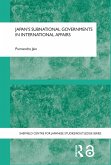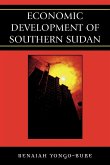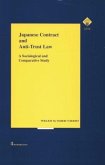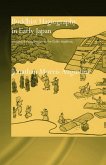Filling a gap in the existing literature, this book analyzes the distinctive features of Japan's development aid, especially technical co-operation, in comparison with other donors' aid. Incorporating a wealth of research, it discusses whether Japan is behind other leading donor countries in rethinking its aid policy and whether it lacks transparency, sensitivity to recipient needs, and a coherent and coordinated policy that targets poverty. The volume assesses the nature and effectiveness of the administration of Japan's aid, and explores the degree of involvement of private sector and non-governmental organizations (NGOs). Including contributions from experts with direct experience with Japanese ODA, the book provides a wide range of recipient and donor viewpoints and presents important policy recommendations.
Hinweis: Dieser Artikel kann nur an eine deutsche Lieferadresse ausgeliefert werden.
Hinweis: Dieser Artikel kann nur an eine deutsche Lieferadresse ausgeliefert werden.








